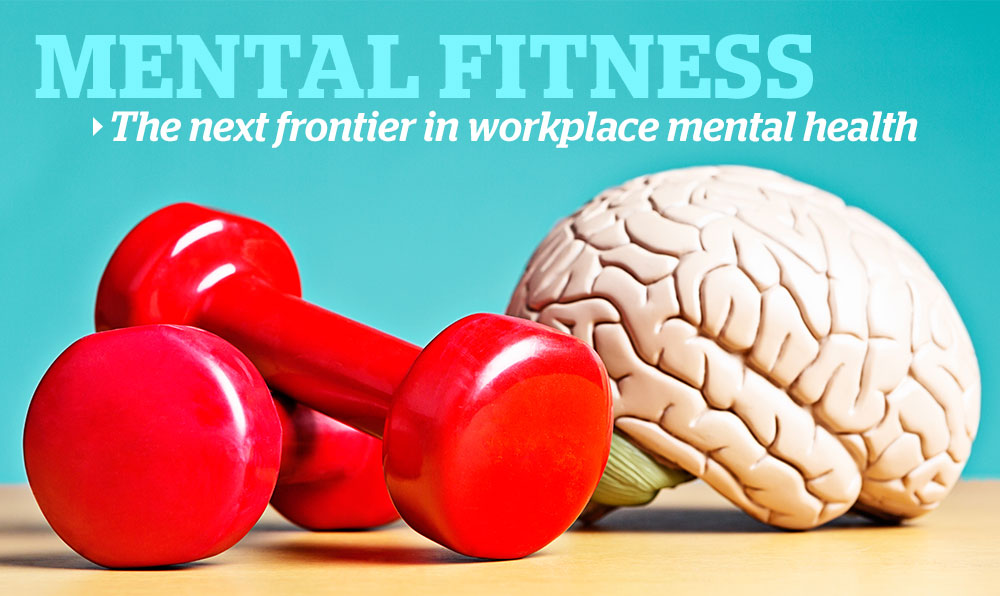

Columns/Blogs
Features
Mental Health
Mental fitness includes noticing what may not be obvious
By Bill Howatt

EDITOR’S NOTE: ‘Mental Fitness: The next frontier in workplace mental health’ is a weekly series, in partnership with Dr. Bill Howatt of Howatt HR Consulting in Ottawa. This series takes a deeper look at mental fitness — an approach to prevent mental harm and promote mental health.
COVID-19 has put many of us in a mode of survival.
This can be happening at an unconscious level as we are preoccupied with our needs. When this happens, we are more likely to notice what we do not have rather than what we have. We are also less likely to notice how our behaviours may be impacting others.
The microskill of noticing what may not be obvious requires mindful self-reflection. It is easy for us to automatically make assumptions and notice one piece of the map: what we are focused on, while missing some key information.
Noticing begins with being open to the fact that our decisions and actions, even those we think are good, can have a negative impact.
Psychologically Safe Workplace Awards provide employers tools, data on mental health
In business, we often use game theory that can create energy on understanding the why, as well as exploring the risks and potential unintended consequences of every action. The goal is to make informed decisions.
In the real world, many do not make informed decisions; we make emotional, reactive decisions that we believe will not harm another person. We make them to meet our perceived needs.
However, without any conscious intention, a decision we think is neutral or designed to help another person can still create mental harm to them.
A case study example can provide context on how not noticing can create unintended consequences:
- Jack thinks he loves Jill. He is highly verbal and tells Jill how much he loves her.
- Jill is more reserved and does not reciprocate this sentiment with words.
- What does Jack notice? Jill is not reciprocating.
- Jack focuses on what he is not getting from Jill.
- This mindset can blind Jack to noticing Jill’s actions. Jill shows up for Jack and is doing her best to balance the demands of her world.
- Jill can tell Jack does not appreciate her and may even feel judged.
- How could Jack benefit if he shifts his focus from noticing what Jill is not doing to what she is doing and make that his focus.
- This does not mean Jack gives up his hope Jill will tell him she loves him. It releases pressure and enables Jack to be fully aware of what is happening that is positive.
Our mental health is influenced by what we focus on and notice. Sometimes, we may be missing something and assuming others are thinking the same thing we are. This can result in missed opportunities to create positive energy that is so good for charging our mental battery.
Practice of noticing
This is a rather simple and profound microskill to add to your life.
It requires moving out of your immediate focus, stepping back, and exploring what may not be obvious. It is interesting when we do not assume what we first see is the full picture, pause, reflect, and notice what may not be obvious at first blush.
Experience mapping: Being mindful of the full map, not just what we focus on, can help remove us from the centre so we can notice other experiences.
By stepping back and noticing others’ personal or professional experiences, we are more likely to understand what they are dealing with.
This gets us out of being focused on our desired outcomes and allows us to examine without judgement how meeting our desired outcomes could be impacting another, positively and negatively.
When we notice something we are unsure or have questions about, it is helpful to get another’s perspective. This is a good practice, as it helps slow us down to consider the possibility things are happening that are not obvious.
Observe with compassion: We can never have too much compassion for ourselves and others. First, we must practice self-compassion and accept we are never going to be perfect.
Secondly, compassion for others creates openness and willingness to notice them. It takes more energy and compassion to look outward and see how our actions are being received by others, even when we are convinced our intentions are pure and positive.
The gifts we think we are giving to another person, such as time, support, or money, may be robbing them of their independence. None of this needs to make sense to us as an observer. We need only to be open and notice this possibility.
Compassion, in this case, can allow us to not feel a need to defend our actions or judge the person as not being grateful. Noticing helps us discover how we can be more aware and helpful. Even if our compassion is rejected, we are noticing how we want to show up. In the end, we can only own our behaviour.
 Dr. Bill Howatt is the Ottawa-based president of Howatt HR Consulting and the former Chief of Research and Workforce Productivity at The Conference Board of Canada.
Dr. Bill Howatt is the Ottawa-based president of Howatt HR Consulting and the former Chief of Research and Workforce Productivity at The Conference Board of Canada.
If there is a particular microskill or topic you would like to see Dr. Howatt write on that supports employees’ mental health in the workplace, please send your request to Talent Canada editor Marcel Vander Wier.
Print this page